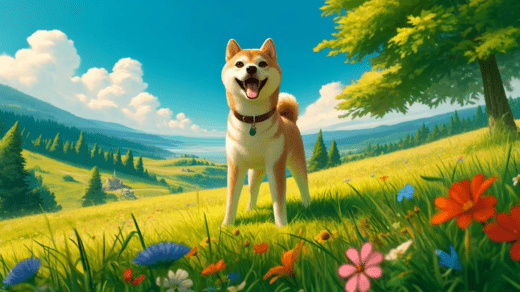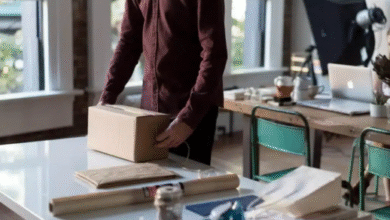Training Your Shiba Inu: From Basic Commands to Advanced Tricks

Training a Shiba Inu can be a rewarding yet challenging experience. Known for their spirited and independent nature, Shiba Inus require a unique approach to training that combines consistency, patience, and positive reinforcement. This comprehensive guide will cover everything you need to know about training your Shiba Inu, from basic obedience commands to advanced tricks, including tips on dealing with their independent streak.
Basic Obedience Commands
Teaching your Shiba Inu basic obedience commands is the foundation of good behavior and effective communication. Here are the essential commands to start with:
1. Sit:
- Hold a treat close to your Shiba Inu’s nose and move your hand up, allowing their head to follow the treat and causing their bottom to lower.
- Once they are in a sitting position, say “sit,” give them the treat, and provide plenty of praise.
2. Stay:
- Start with your Shiba Inu in the sitting position. Hold your hand out in front of you and say “stay.”
- Take a few steps back, then return and reward them if they stay in place.
- Gradually increase the distance and duration before giving the reward.
3. Come:
- Put a leash on your Shiba Inu and gently pull them towards you while saying “come.”
- Reward them with treats and praise when they reach you.
- Practice this in a safe, enclosed area without the leash as they become more reliable.
4. Down:
- Hold a treat in your closed hand and bring it to the ground, allowing your Shiba Inu to follow.
- Once they are lying down, say “down” and reward them with the treat and praise.
5. Leave It:
- Show your Shiba Inu a treat in your hand, then close your fist around it and say “leave it.”
- Wait until they lose interest and stop trying to get the treat, then reward them with a different treat.
House Training
House training a Shiba Inu requires consistency and patience. Follow these steps to establish good bathroom habits:
1. Establish a Routine:
- Take your Shiba Inu outside at regular intervals, such as first thing in the morning, after meals, and before bedtime.
- Consistency helps them understand when and where they should go.
2. Choose a Bathroom Spot:
- Take your Shiba Inu to the same spot each time to reinforce where they should relieve themselves.
- Use a command like “go potty” to help them associate the spot with the action.
3. Supervise Indoors:
- Keep a close eye on your Shiba Inu indoors to prevent accidents.
- Use a crate or a designated area when you cannot supervise them directly.
4. Reward Success:
- Praise and reward your Shiba Inu immediately after they go to the bathroom outside.
- Positive reinforcement helps reinforce the behavior you want.
5. Handle Accidents Calmly:
- If an accident happens indoors, clean it up thoroughly to remove the scent.
- Avoid scolding your Shiba Inu, as this can create fear and confusion.
Advanced Tricks
Once your Shiba Inu has mastered basic commands, you can move on to more advanced tricks to keep them mentally stimulated and strengthen your bond. Here are a few tricks to try:
1. Shake Hands:
- Have your Shiba Inu sit, then gently lift one of their paws while saying “shake.”
- Reward them with a treat and praise.
- Practice until they offer their paw on command.
2. Roll Over:
- Start with your Shiba Inu in the down position. Hold a treat close to their nose and move it in a circular motion.
- Encourage them to follow the treat and roll over.
- Once they complete the roll, say “roll over” and reward them.
3. Play Dead:
- Have your Shiba Inu lie down, then gently roll them onto their side while saying “play dead.”
- Reward them with treats and praise when they stay in position.
4. Spin:
- Hold a treat close to your Shiba Inu’s nose and move your hand in a circular motion.
- Encourage them to follow the treat and spin around.
- Say “spin” and reward them when they complete the spin.
5. High Five:
- Similar to teaching “shake,” but raise your hand higher and encourage your Shiba Inu to touch it with their paw.
- Say “high five” and reward them with a treat.
Dealing with the Shiba Inu’s Independent Nature
Shiba Inus are known for their independence, which can make training challenging. Here are some tips to work with their unique temperament:
1. Positive Reinforcement:
- Use treats, praise, and playtime to reward good behavior.
- Shiba Inus respond well to positive reinforcement and are more likely to repeat behaviors that bring rewards.
2. Keep Training Sessions Short:
- Shiba Inus can get bored easily, so keep training sessions short and fun.
- Aim for 5-10 minutes per session and end on a positive note.
3. Be Consistent:
- Consistency is key in training Shiba Inus. Use the same commands and rewards every time.
- Make sure all family members are on the same page to avoid confusing your dog.
4. Patience is Essential:
- Training a Shiba Inu can take time, so be patient and persistent.
- Avoid getting frustrated or using harsh methods, as this can damage the trust between you and your dog.
5. Socialization:
- Expose your Shiba Inu to different environments, people, and animals to build their confidence and reduce behavioral issues.
- Socialization helps them become well-rounded and better-behaved.
When considering a name for your Shiba Inu, you might find inspiration from Shiba Inu names. Choosing a name that reflects their spirited and loyal nature can enhance your bond and make training more effective.
6. Professional Help:
- If you’re struggling with training, consider enrolling in a professional obedience class or working with a certified dog trainer.
- Professional guidance can provide valuable techniques and support.
Conclusion
Training your Shiba Inu requires a combination of consistency, patience, and positive reinforcement. By starting with basic obedience commands and gradually introducing advanced tricks, you can build a strong foundation of good behavior and effective communication. Remember to work with their independent nature, keep training sessions short and fun, and seek professional help if needed. With dedication and love, your Shiba Inu can become a well-behaved and delightful companion.



